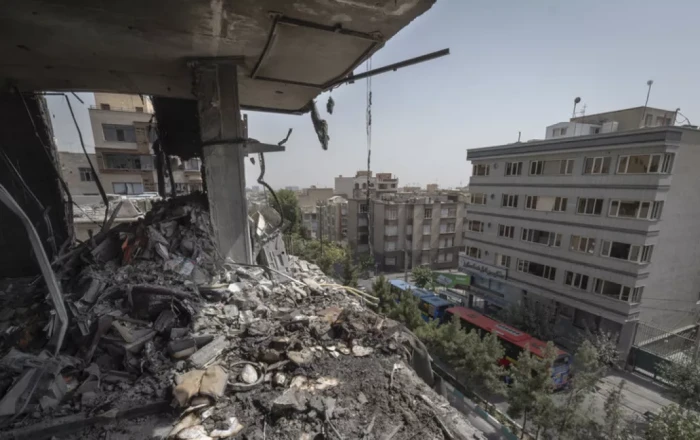Pakistan’s military on May 11 announced that it had launched strikes on 26 Indian targets as part of “Operation Bunyan-um Marsoos” in retaliation to India’s violation of its airspace and missile attacks on Pakistani air bases earlier this week.
At a joint press briefing, Pakistan’s Inter-Services Public Relations (ISPR) spokesperson Lt Gen Ahmed Sharif Chaudhry, alongside Air Vice Marshal Aurangzeb Ahmed and Vice Admiral Raja Rab Nawaz detailed the scope of the operation, Caliber.Az reports via foreign media.
Gen Chaudhry recalled that the Indian attacks, which occurred overnight between May 6 and 7, killed several civilians, including women, children, and the elderly. One Pakistani aircraft was reported to have sustained minor damage.
“Twenty-six military targets, along with facilities in India used to target Pakistani citizens and entities involved in fomenting terrorism in Pakistan, were engaged in both Occupied Jammu and Kashmir and mainland India,” he said.
The operation was described as a “textbook demonstration” of Pakistan’s tri-services coordination, utilising real-time intelligence and network-centric warfare capabilities. He informed that the targets included air force and aviation bases at Suratgarh, Sirsa, Adampur, Bhooj, Nalia, Bathinda, Barnala, Halwara, Avantipura, Srinagar, Jammu, Mamoon, Ambala, Udampur and Pathankot — all of which sustained major damages.
Additionally, Air Vice Marshal Ahmed elaborated on the Pakistan Air Force’s role, stating that the strikes were executed at a time and place of Pakistan’s choosing, and represented the largest such operation against Indian airfields since 1971.
“Our precision and resolve avoided collateral damage while hitting maximum targets,” he said.
Meanwhile, Vice Admiral Nawaz highlighted the Pakistan Navy’s readiness to respond to any maritime threat, including monitoring the Indian aircraft carrier INS Vikrant, which approached within 400 nautical miles of Pakistan’s coast before retreating.
India, for its part, claimed success in its earlier offensive, code-named “Operation Sindoor,” launched after a deadly incident in Pahalgam on May 7, which killed 31 civilians. Indian officials said their strikes eliminated high-value targets inside Pakistan but declined to confirm reports that several Indian warplanes had been shot down in the ensuing response.
“Losses are a part of any combat scenario,” said Air Marshal AK Bharti during a press briefing, adding that all Indian pilots had returned.
Lt Gen Chaudhry emphasised that Pakistan had not sought a ceasefire and warned against the dangers of escalation between two nuclear-armed states.
He warned that there was no space for a war between two nuclear-armed nations.
“If anyone wants to carve out this space for war, he is actually carving out the space for mutual annihilation,” he added.
Chaudhry also praised the Pakistani military, youth, and media for their role during the conflict, and commended the government for making “destiny-changing decisions.”
Separately, the ISPR chief said that the dispute can only be resolved according to the UN Charter and the will of the Kashmiri people.
“India continues to portray Kashmir as an internal issue, but it remains an internationally recognised dispute pending resolution at the United Nations,” he noted.
He highlighted that India’s unilateral constitutional changes and ongoing oppression in Kashmir do not alter the fact that it is a global issue.
Regarding the Indus Waters Treaty, he said Pakistan’s stance is clear and consistent, and there is no need for the armed forces to comment further on it.
Commenting on the claims of Indian pilot in Pakistan’s custody, Chaudhry refuted the rumours.
“There is no Indian pilot in our custody,” he confirmed.
He also confirmed that Indian attacks caused some damage to infrastructure and aircraft, but the damage was minor, and the aircraft will soon be operational again.
“Our response reflects national unity. Both Pakistan and Indian forces are professional militaries, and we exercised restraint to control escalation,” he finalised.
By Sabina Mammadli
Source: caliber.az












